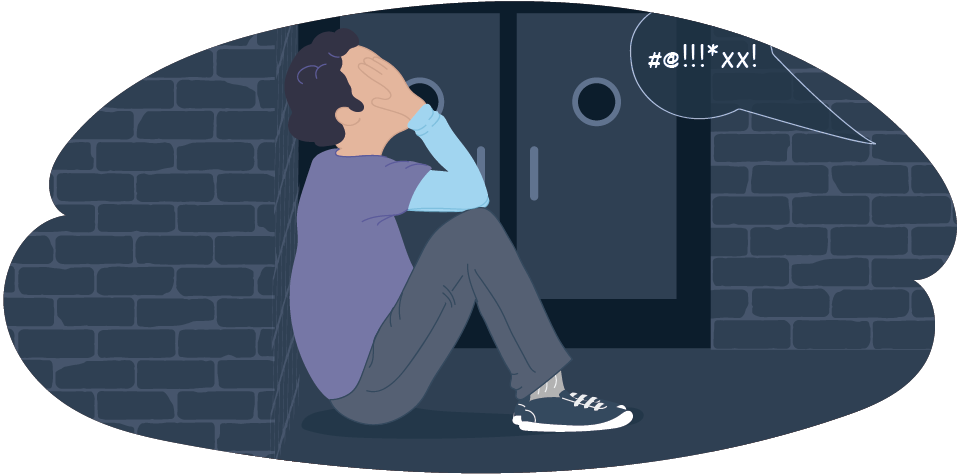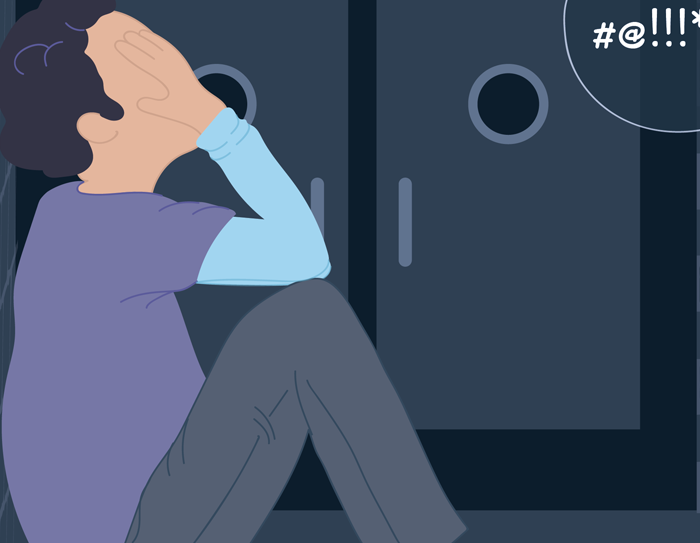Understanding emotional abuse
When someone is repeatedly hurting you with their words or actions, it’s important to remember that you’re not alone.
Content Warning: this article contains violence and trauma related content that may be triggering or distressing.

What is emotional abuse?
Emotional abuse happens when someone repeatedly treats you in a way that makes you feel scared, worthless or alone.
- It’s sometimes called psychological or verbal abuse.
- It can happen in any relationship – with a parent, family member, partner, ex-partner, carer or support worker.
- It involves someone repeatedly saying or doing things that are damaging to your confidence, self-esteem and independence.
- Emotional abuse can include constant yelling, criticising, isolating and bullying.
- Emotional abuse can be just as harmful as physical abuse.
- Nothing you say or do makes it ok for someone to emotionally abuse you.
Types of emotional abuse
Some examples of emotional abuse include:
Calling you names or constantly putting you down
Never saying anything kind or praising you on a success
Forcing you to do things by scaring you
Bullying, teasing or insulting you
Constantly criticising, humiliating or blaming you
Frequently swearing, shouting, yelling or screaming at you
Ignoring you or pretending you aren’t there
Controlling or withholding your money
Making you feel afraid, intimidated or threatened
Isolating you from family, friends or restricting your freedom
Having unrealistic expectations or unreasonable demands of you
Driving recklessly in the car to scare you or destroying your property
Threatening to harm you, your pets or other people you care about
Telling you that you’re worthless, unloved or not enough
Not allowing you to express your view or making fun of what you say
Treating you badly because of things you can’t change (eg. disability, religion, race, past)
You deserve to be treated with care and respect. No-one has the right to make you feel bad about yourself.
Emotional abuse can be just as hurtful and painful
While emotional abuse might not be as obvious or hurt you physically, it can be just as harmful on your mental health and wellbeing.
You may feel:
- Anxious, angry or confused
- Fearful of doing something wrong
- Shame, guilt, helpless or controlled
- Sad, lonely or like hurting yourself
- Self-conscious or self-critical
- Unable to express your feelings
- Unloved, unwanted or rejected
- Worthless, hopeless or betrayed
- Unable to trust others or eager to please them
- Other areas of your life (work, study) are impacted too
If emotional abuse is happening to you…
It’s important to remember:
When you’re constantly being treated in a way that makes you feel bad about yourself, you may start to believe what they’re saying is true and that you deserve to be treated this way – BUT you don’t.
There are people you can talk to who can help
Here’s a list of some people you could try talking to. Remember, if at first you don’t get help, keep trying until you find somebody who will help you.
Kids Helpline - 1800 55 1800
1800 RESPECT - 1800 737 73
Counsellor
A relative or friend
Doctor or nurse
Psychologist
Check these out too:
Physical violence and abuse
Violence is never okay. If you or someone you know is experiencing ...
READ MEDomestic violence at home
Violence or abuse at home isn’t ok. Everybody deserves to feel ...
READ MEWhat is abuse
Abuse takes many forms and there isn’t one single way that ...
READ MEAbuse in adult relationships
Learn about the different forms of abuse in relationships and where to ...
READ METalking helps! We’re here for you.
No problem is too big or too small.
We're here 24 hours a day, 7 days a week






